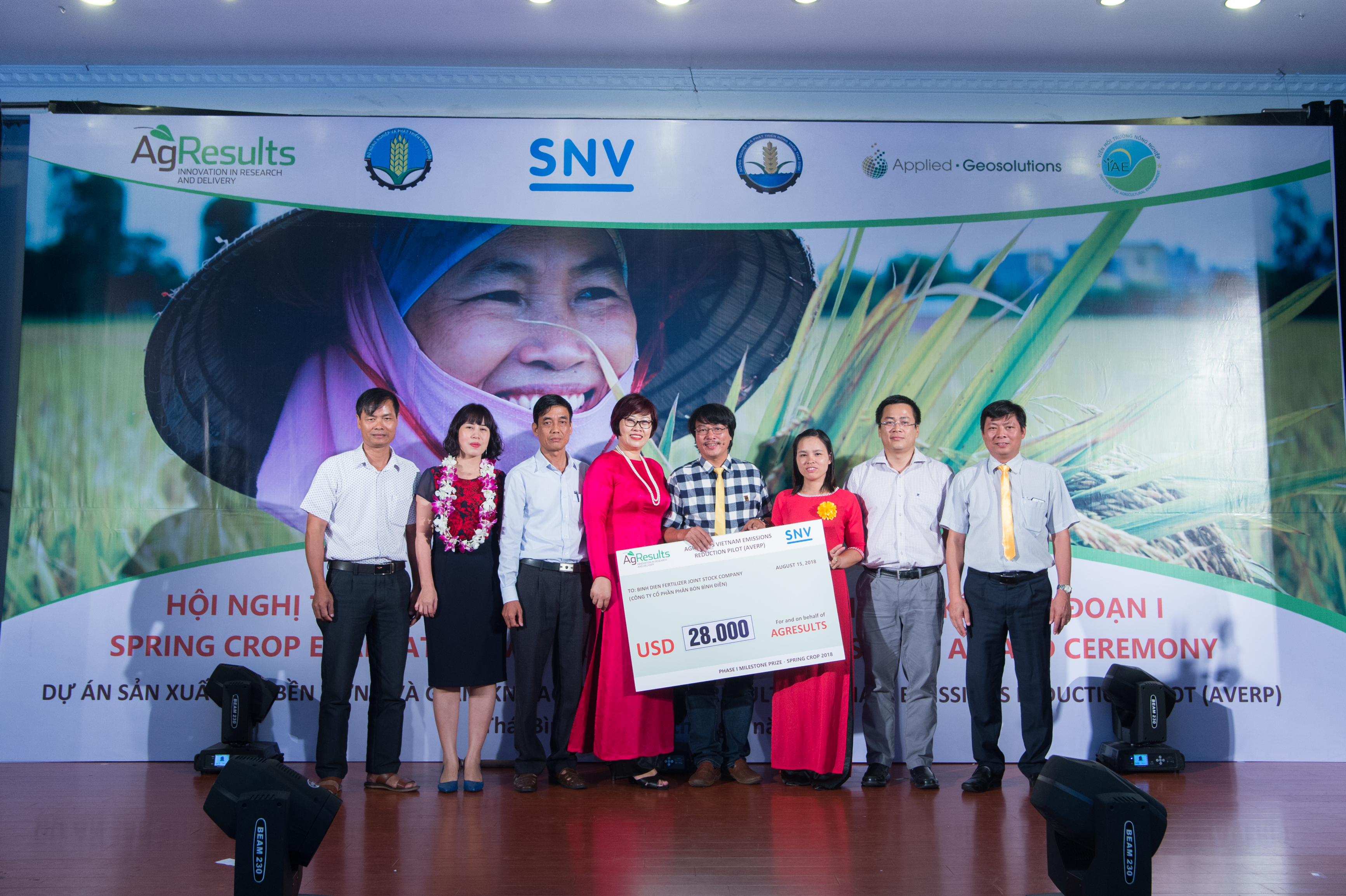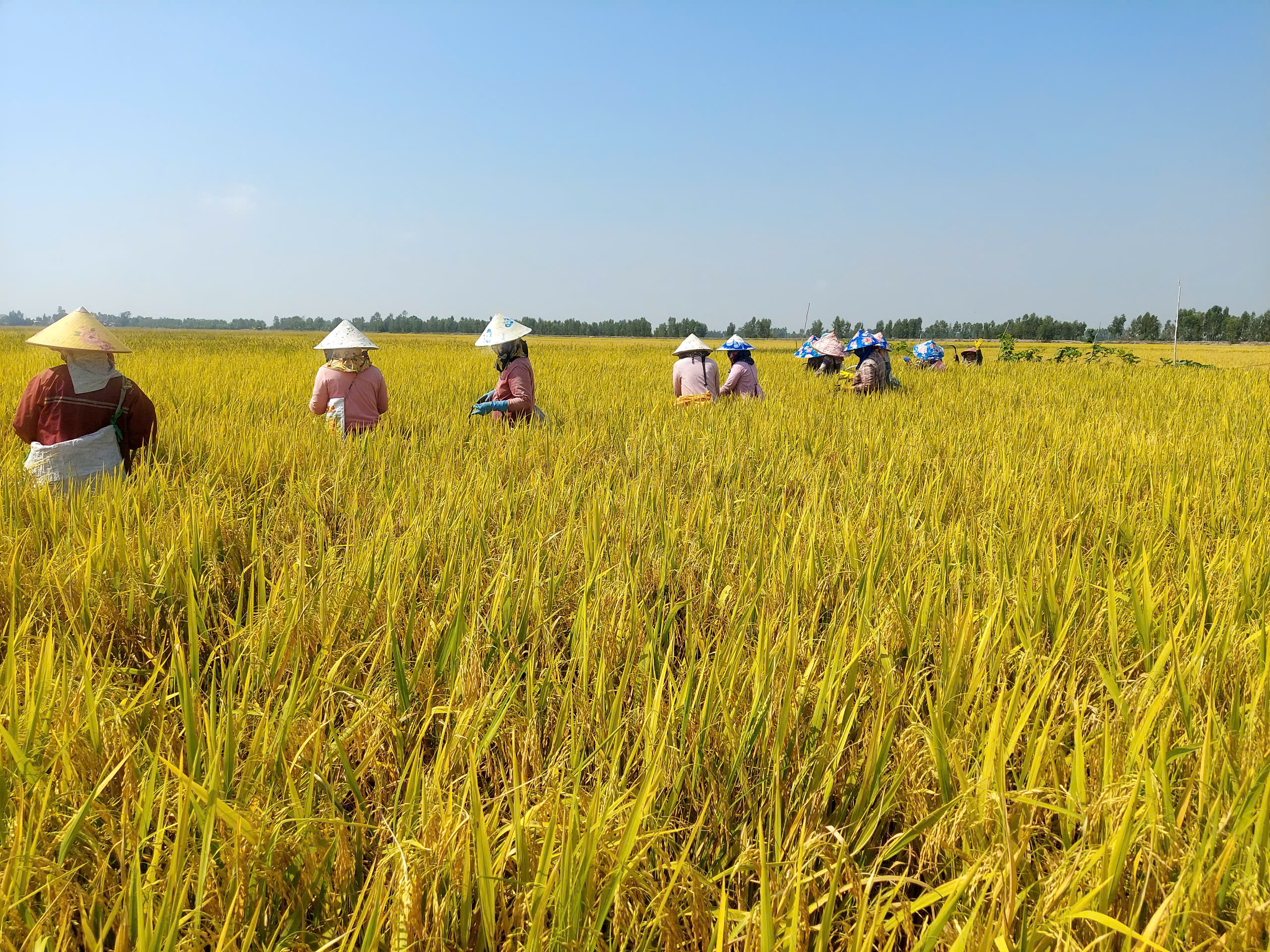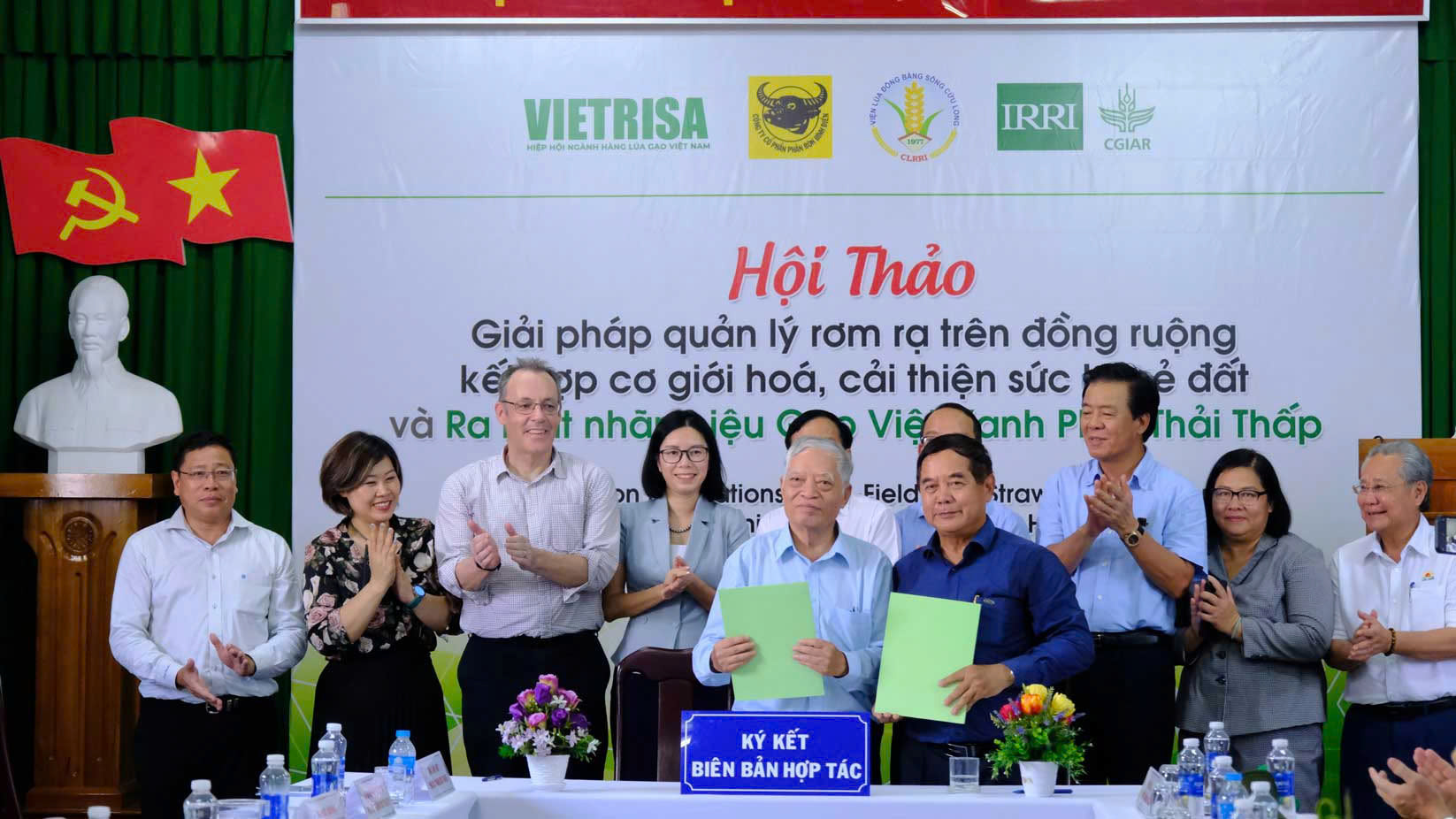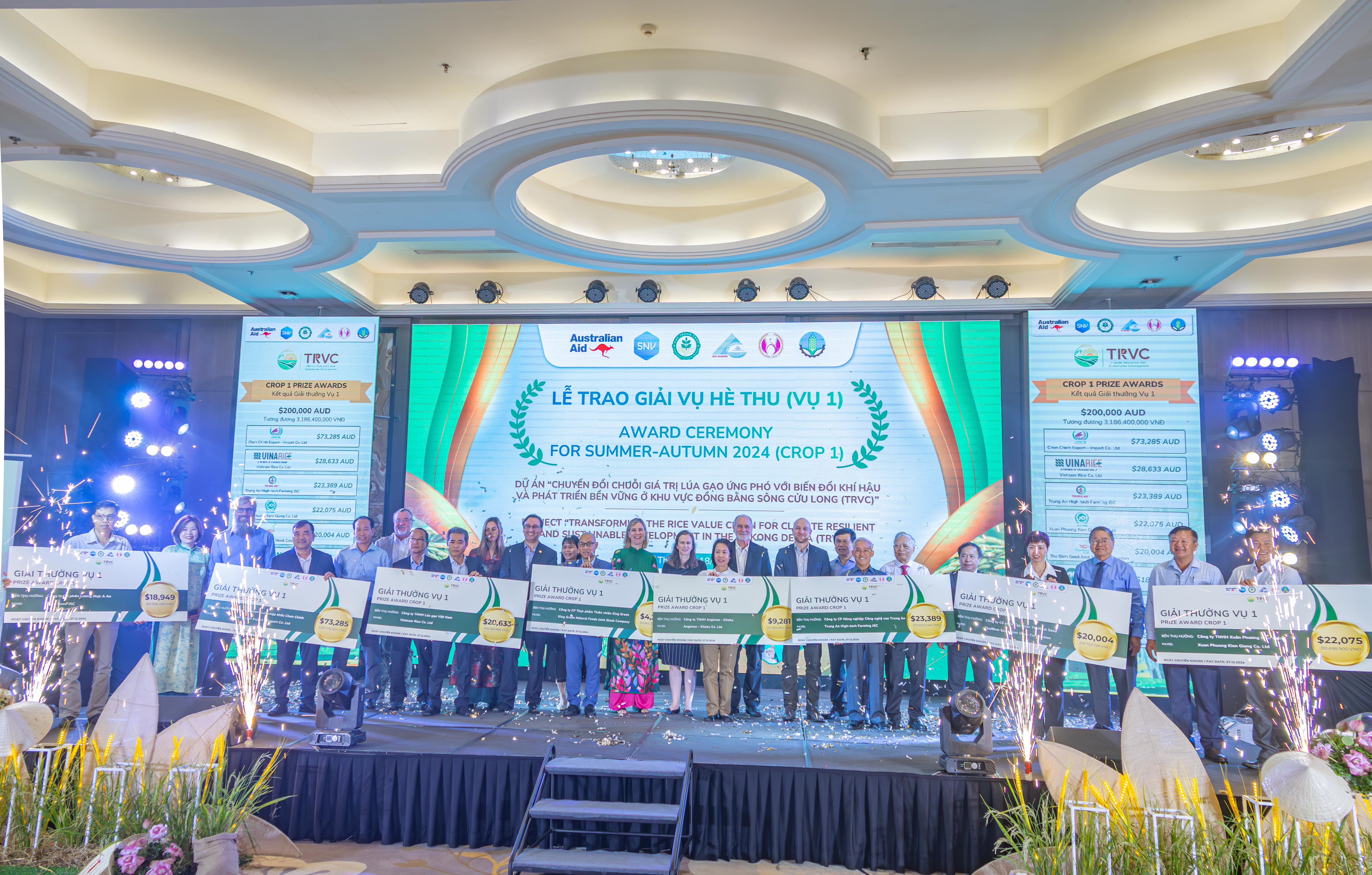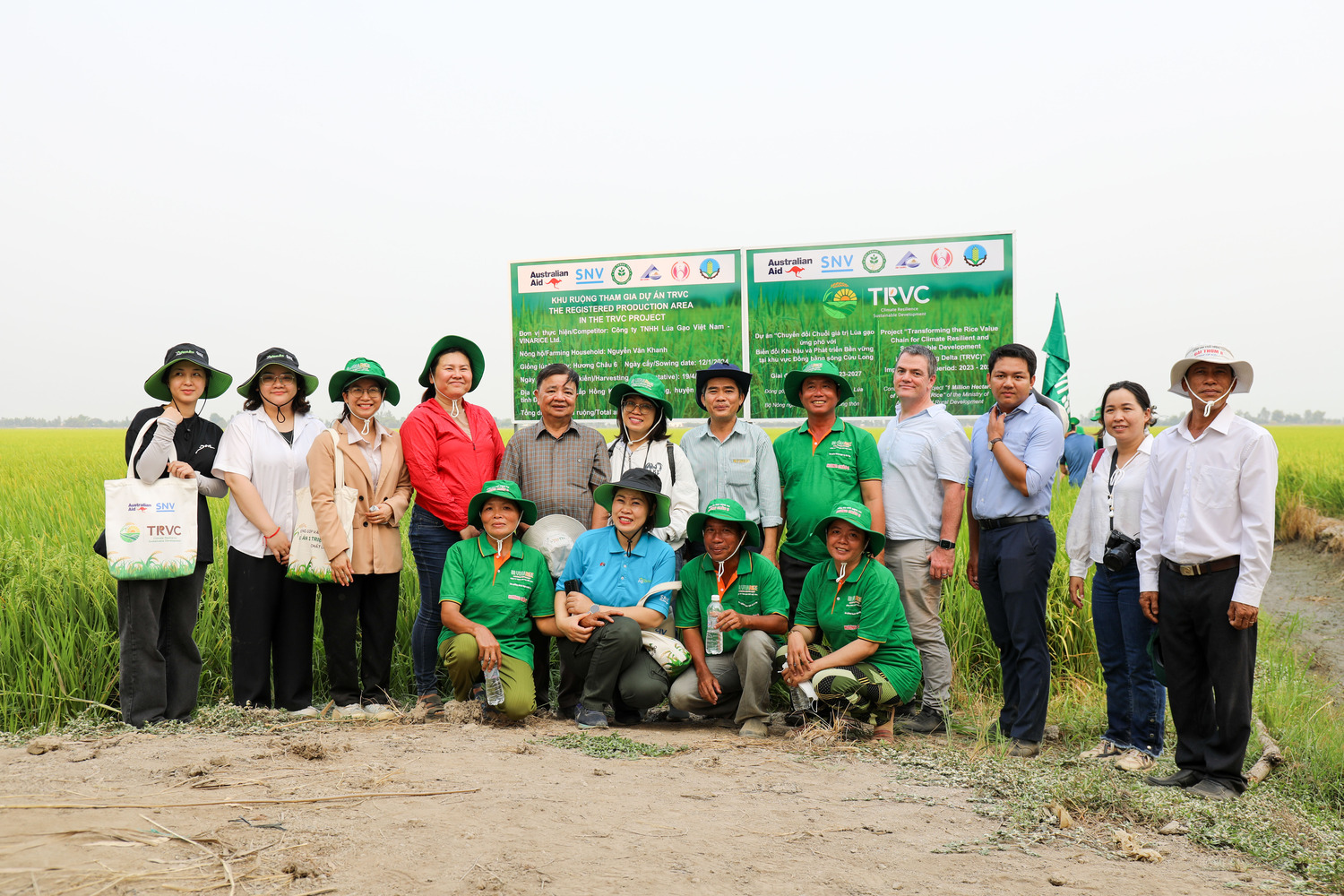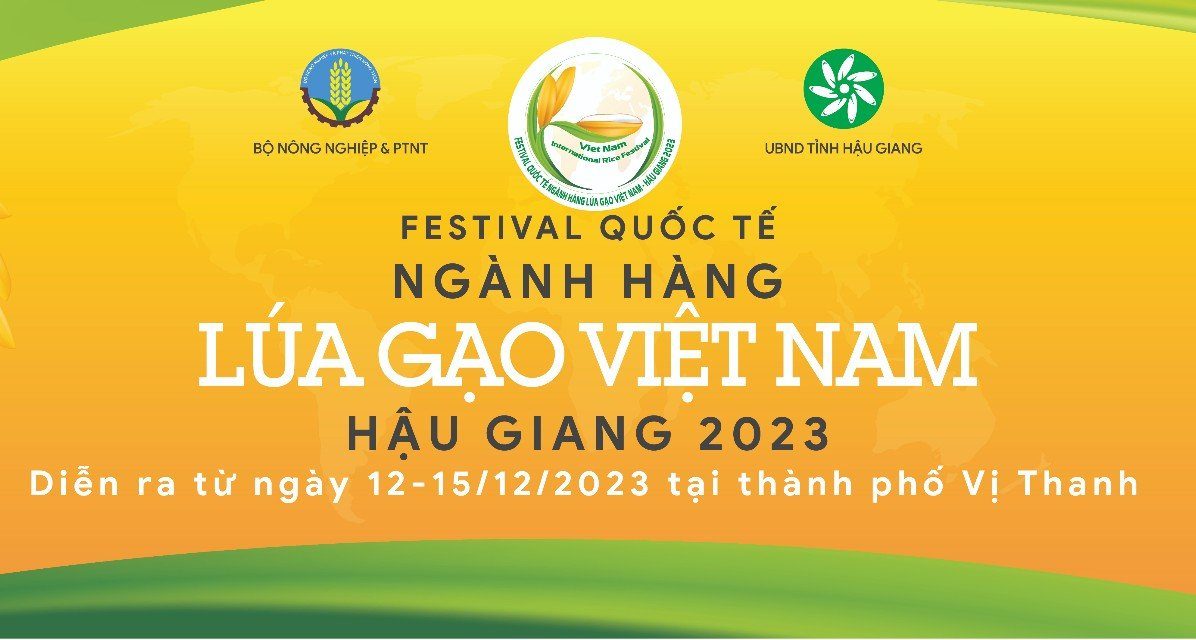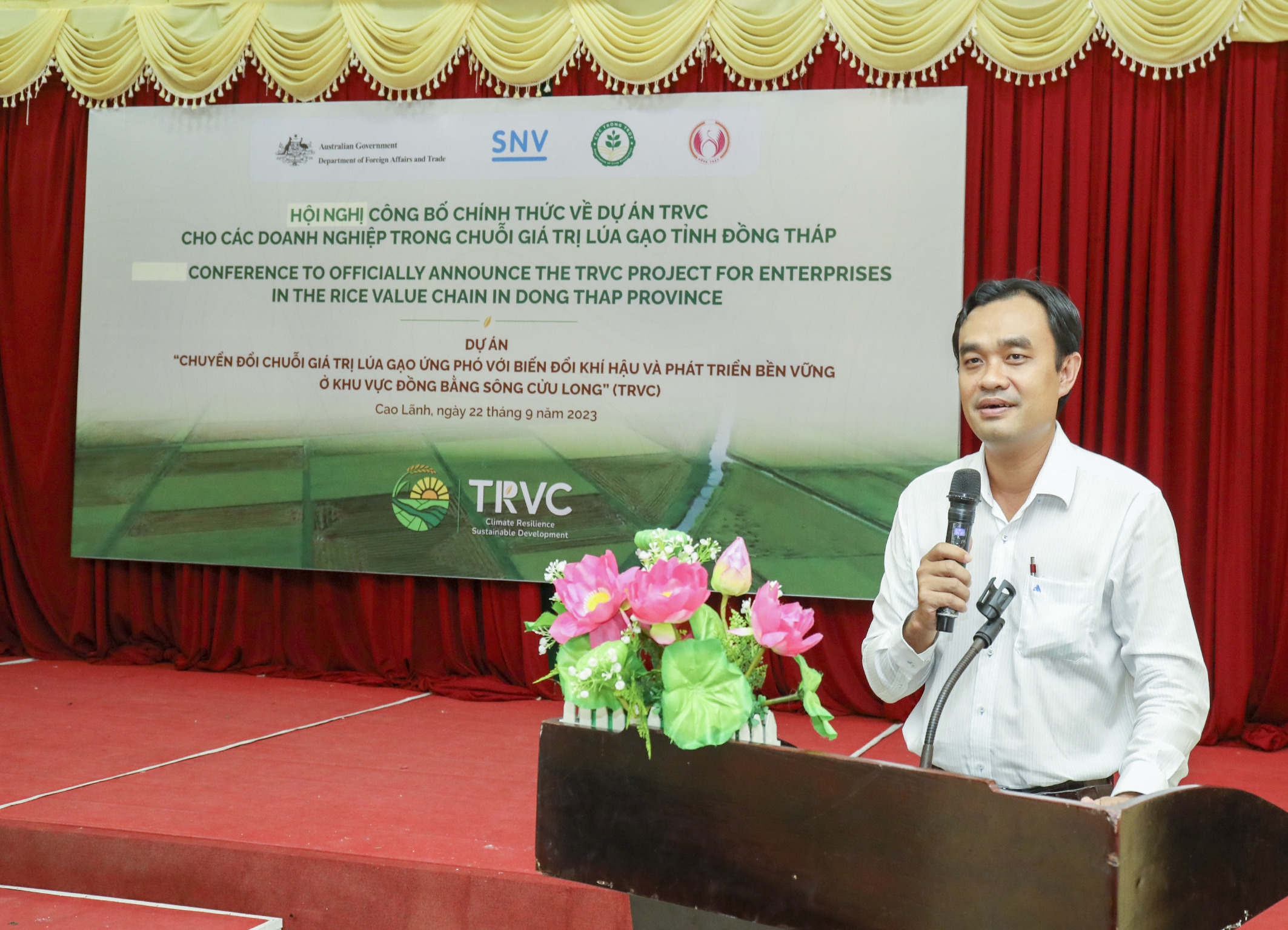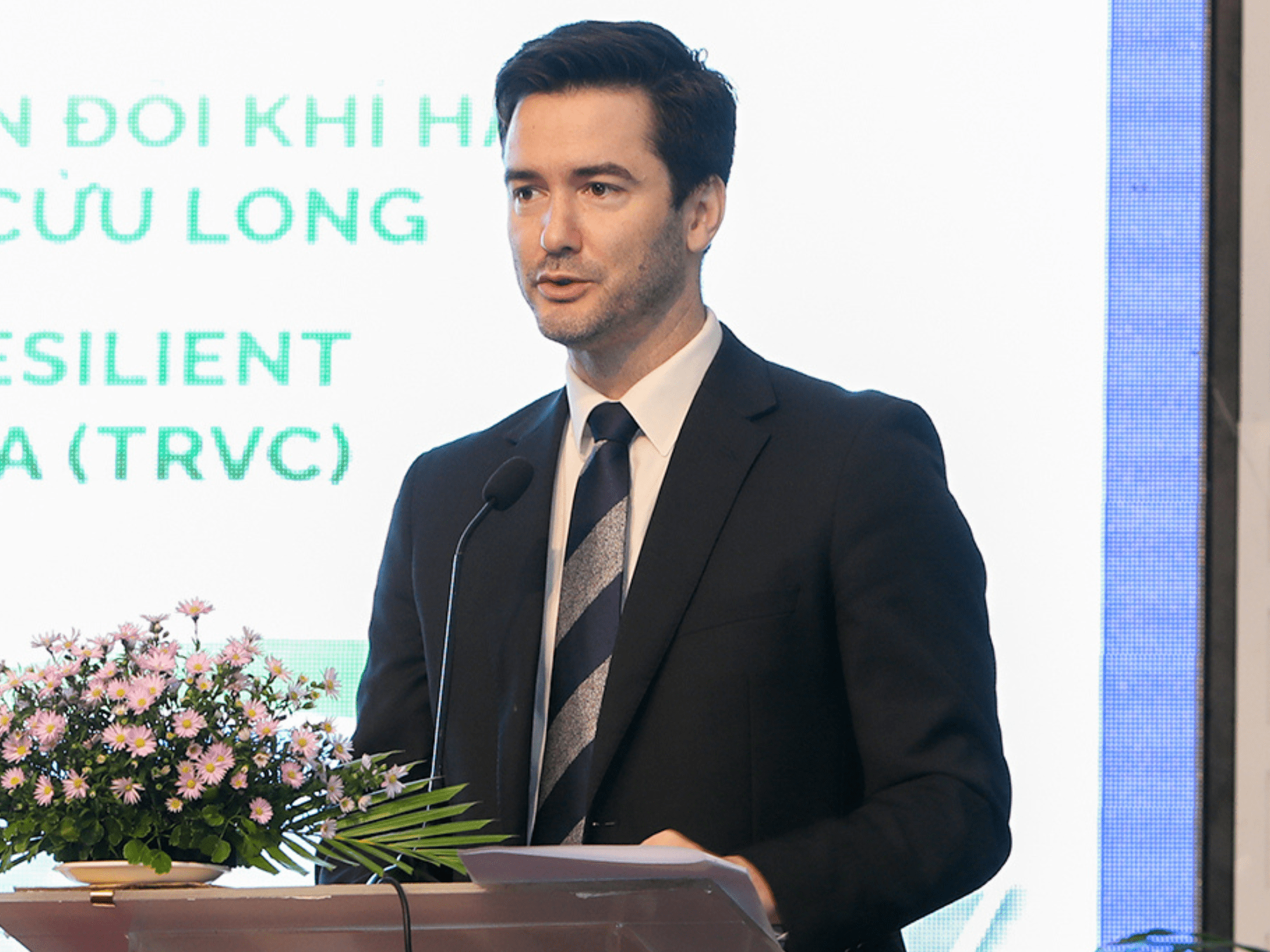The AgResults Vietnam Emissions Reduction Challenge Project (AVERP) is an $8 million prize-winning competition sponsored by DFAT, CIDA, UKAID, USAID and the Gates Foundation for development, testing, and scaling purposes. innovative technologies, tools and methods to increase productivity and reduce greenhouse gas emissions in rice production. AVERP was one of the first emission reduction projects implemented with a large number of smallholder farmers and the first to use Pay-for-Results (PfR) mechanism.
1. AgResults Vietnam Emissions Reduction Challenge Project (AVERP)
Led by Netherlands Development Organization SNV in Vietnam and implemented during 2017-2021 in Thai Binh Province in the Red River Delta, the Project has developed and adopted a very innovative approach by run a competition, with a “pull” - Pay-for-Results (PfR) mechanism to engage diverse private sectors in developing, testing, and promoting innovative solutions to deflation greenhouse gas emissions and increased rice yields – thereby increasing the incomes and livelihoods of smallholder farmers.
The project was conducted in two phases. Phase I of the Project consisted of 2 trials, which started in the 2017 Crop, lasted until the Spring 2018 crop, with the participation of 11 contestants. Based on the results of the 2017 Crop (first trial crop), 9 out of 11 Entries were awarded in proportion to GHG reduction and yield increase.
Phase II consists of 4 consecutive crops, starting in the Spring crop of 2019, ending in the 2020 Crop season. At the end of the testing period, 4/11 Entrants with the highest achievements were selected to participate. move on to Phase II. These are enterprises possessing advanced technology packages, which are considered to have many prospects to apply production on a large scale, contributing to improving rice productivity and quality, especially reducing GHG.
2. Main outputs of the AVERP Project
After 5 years of implementation and implementation in Thai Binh province, the "AgResults Vietnam Emissions Reduction Challenge Project” (AVERP) has created an environment, a level playing field as well as the application of The most advanced testing method to find out the technology packages that really bring efficiency in increasing rice yield but reducing greenhouse gas, thereby bringing sustainable production efficiency to the Red River Delta.
AVERP has been successful in demonstrating how the PfR award mechanism has worked extremely well to encourage scaling up of climate-smart/low-carbon rice technologies, especially when compared to other methods. standards promotion mechanism approach used by government programs and other development projects.
Specifically, the extremely positive results achieved from the AVERP project include:
-
Encourage private sector participation and investment: AVERP drives significant investment by competitors (between USD 79 and USD 160/ha);
-
Smallholder farmers apply low carbon technologies: Up to 37,000 small-scale farmers have applied new technologies to their farming activities, of which 73.5% are women;
-
Increase productivity and profits for farmers: Farmers' productivity increased 14% compared to matched comparison farmers. Their net harvest value (production value minus costs) is 11% higher than other farmers.
-
Reducing greenhouse gas emissions: Compared with farmers not participating in the project, participating households are more likely to use measures related to “lower greenhouse gas emissions”, including low-density farming, reduced use of fertilizers and improved crop residue management.
-
Cost effective: Regardless of the potential value of GHG emission reductions, AVERP has similar costs to non-PfR projects in Vietnam in terms of costs per farmer and per hectare for technology transfer. .
-
Sustainability: Even without direct incentives (carbon credits or price incentives), at least two of the most successful competitors will likely continue to promote their new technology packages. Farmers are also very active about continuing to use the technology under similar agreements.
Following are the results obtained from the AVERP project in metric form:
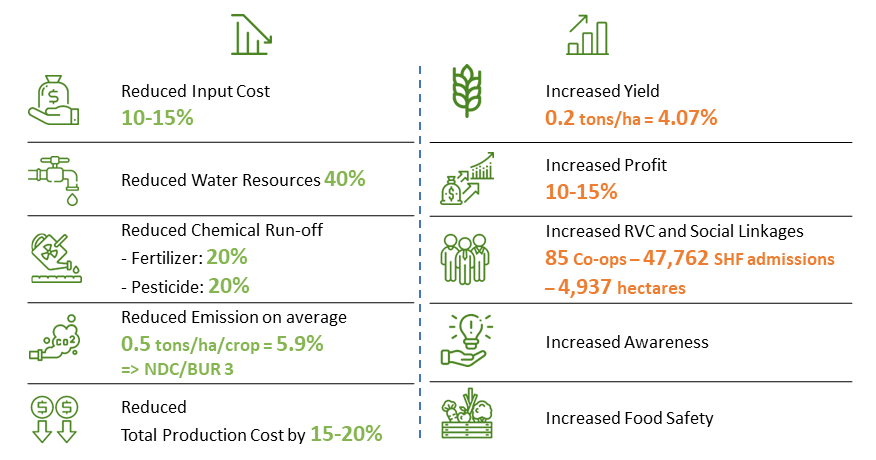
With great successes, AVERP has created conditions for SNV to replicate this model in the Mekong Delta region - the area that accounts for the majority of Vietnam's rice exports. It can be said that the AVERP project is a solid stepping stone for the birth and development of the project "Transforming the Rice Value Chain for Climate Resilient and Sustainable Development in the Mekong Delta” (TRVC).
Top







